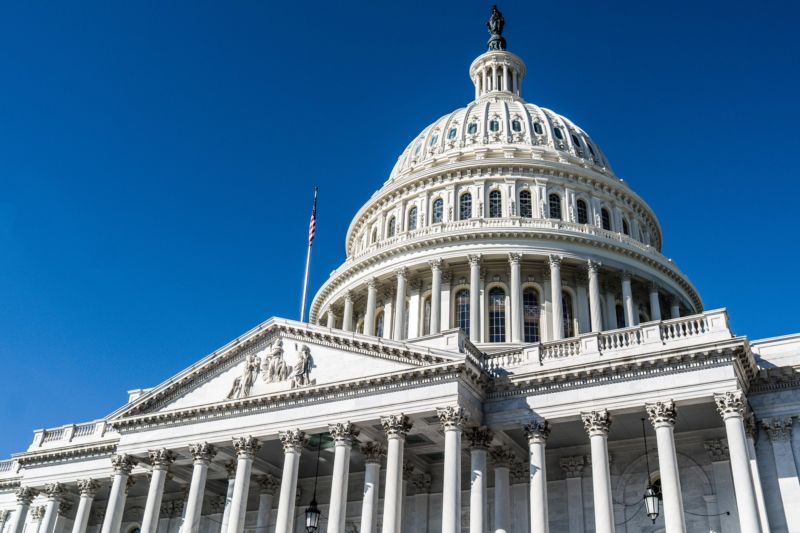
The long summer recess for Congress is at last well and truly over. The House Judiciary Committee has ramped up for the fall season, issuing demands for huge piles of documentation from Apple, Amazon, Facebook, and Google as its antitrust probe into Big Tech grows.
The committee launched the bipartisan inquiry in June, seeking in part to determine “whether existing laws are adequate” to the task of regulating the sprawling tech titans that power the 21st century economy. As part of that probe, the committee has now issued lengthy requests for information to the four companies digging deeply into the question of competition.
The tech sector is facing scrutiny from all sides at the moment. The House investigation is separate and distinct from the various antitrust probes against the same four companies the Federal Trade Commission, the Department of Justice, and nearly all the states currently have in progress.
“There is growing evidence that a handful of corporations have come to capture an outsized share of online commerce and communications,” committee chairman Jerrold Nadler (D-N.Y.) said in a written statement. The responses should give the committee a “better understanding” of how much market power the companies have, he added, “how they are using that market power, whether they are using their market power in ways that have harmed consumers and competition, and how Congress should respond.”
An antitrust probe is not simply an examination of whether a company is a monopoly. Being the dominant player in a market is not against the law. Esven in a highly competitive environment, someone, at any given time, is going to be ahead.
Rather, the probes are looking for evidence of anticompetitive behavior: tactics that keep you at the top of the heap unfairly, or underhanded strategies that you use to knock out potential competitors before they can become a threat. Critics of Facebook, for example, allege that the company buys up startups that might eventually compete with it and then either integrates those companies’ products or winds them down. Apple likewise uses data from App Store sales to choose what kind of apps and features it should develop in-house, and Amazon faces an antitrust probe in Europe over the way it competes against third-party marketplace merchants using its platform.
Sprawling empires
The extensive lists of questions posed to the four companies could generate some fascinating results. On their own, the letters already make very clear how massive and sprawling a footprint many of these companies have—they also make clear the implication that competitors are at best trying to scramble around the four metaphorical eight-ton gorillas sitting on the field.
For example, each of the four companies is asked to provide a list of the top 10 competitors to several of its services, including an explanation of why each entity on the list constitutes competition. Coming up with 10 viable competitors to the core Facebook app, which boasts 244 million users in the US and Canada and 2.4 billion worldwide, may prove challenging even for Facebook’s experienced executives. From an outsider’s vantage point, meanwhile, the top competition to Facebook Messenger may include services such as WhatsApp—which Facebook has owned since 2014.
The committee also requests access to more than 10 years’ worth of communications to or from top executives at all four firms, regarding dozens of topics each. The list to Amazon, for example, includes questions about Amazon Web Services, the company’s third-party retail marketplace, consumer data, contract agreements, sorting and ranking algorithms, Amazon Prime, and several other matters.
All the companies are also asked to provide communications relating to any cases filed in the US relating to allegations of anticompetitive behavior within the past 10 years, as well as relating to “any prior investigation or litigation involving a US or foreign government entity, including US state attorneys general offices, within the past 10 years” relating to allegations that the company “engaged in anticompetitive practices or otherwise violated antitrust laws.” Those communications alone will likely generate untold reams of data in response, as the companies are not only facing current US antitrust investigations; they’ve also faced previous probes both in their home country and elsewhere.
For example, the FTC has been contemplating antitrust action against Google for the better part of a decade. In 2012, an internal memo circulated to all five commissioners that strongly recommended launching an antitrust suit against Google for abusing its dominance, although the commission ultimately decided in 2013 not to bring charges.
The European Union, meanwhile, has fined Google billions of dollars for antitrust violations just in the past three years. In 2017 it was a €2.42 billion fine for the company steering shoppers toward Google’s platform in search results, in 2018 it was a €4.34 billion fine for the company unfairly pushing its own apps ahead of competitors’, and earlier this year two fines were joined by another €1.5 billion fine for the company abusing its dominant position in the ad sales market. (For conversion’s sake, €1 billion there is roughly $1.11 billion here.)
The committee gave all four companies a deadline of October 14 to comply with the requests for information. You can read the full text of the four letters here: Amazon (PDF), Apple (PDF), Facebook (PDF), and Google (PDF).
